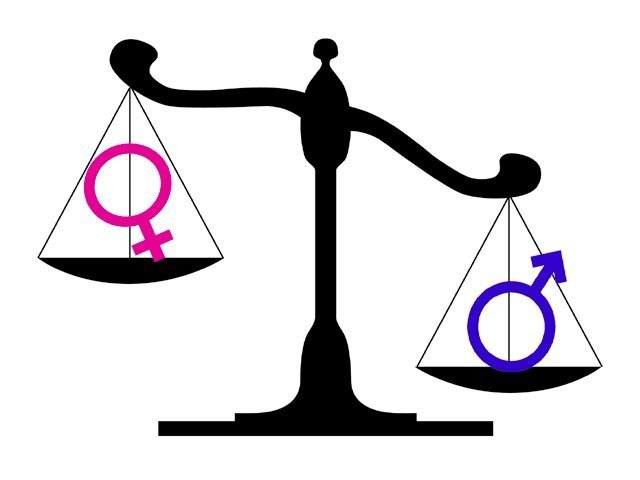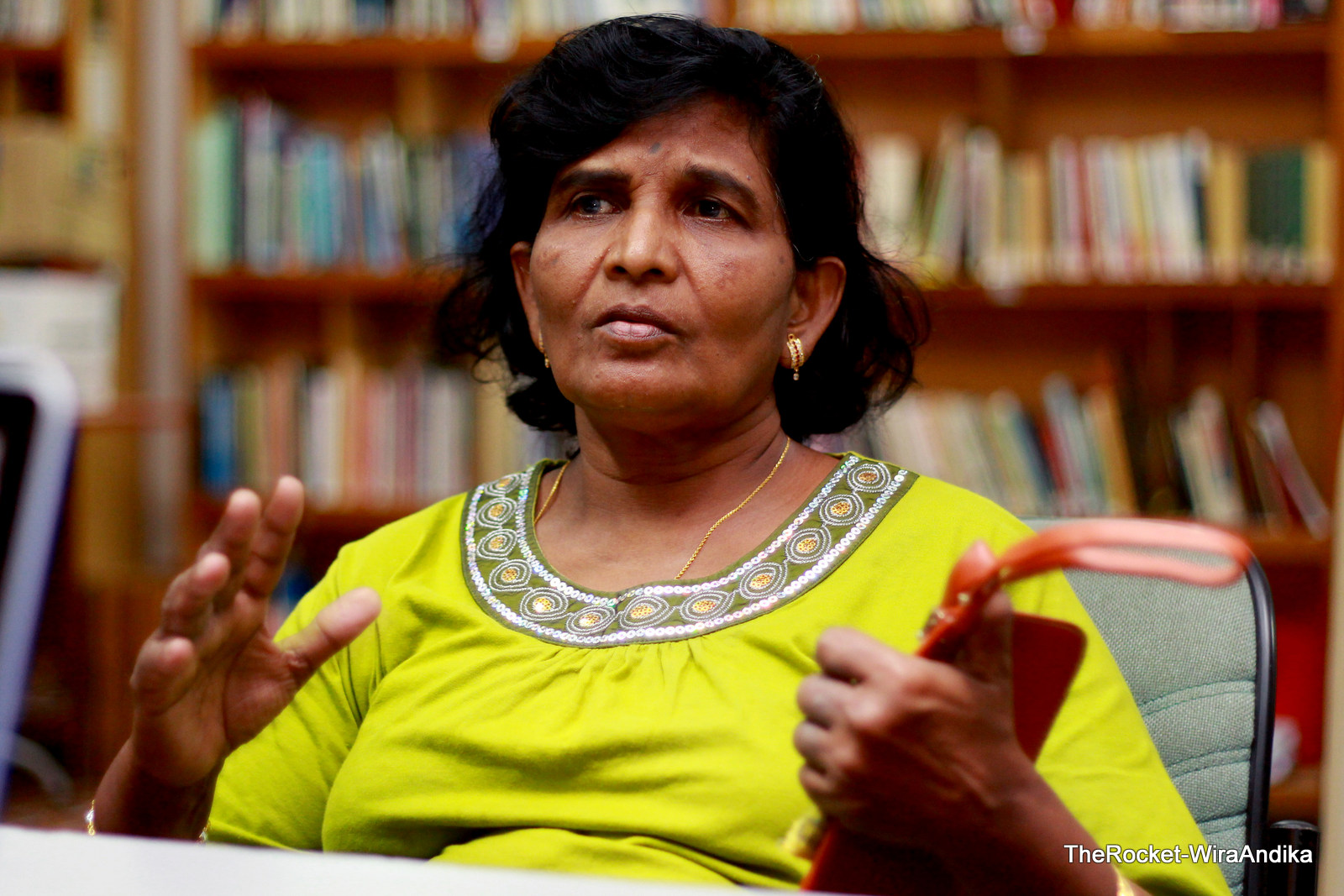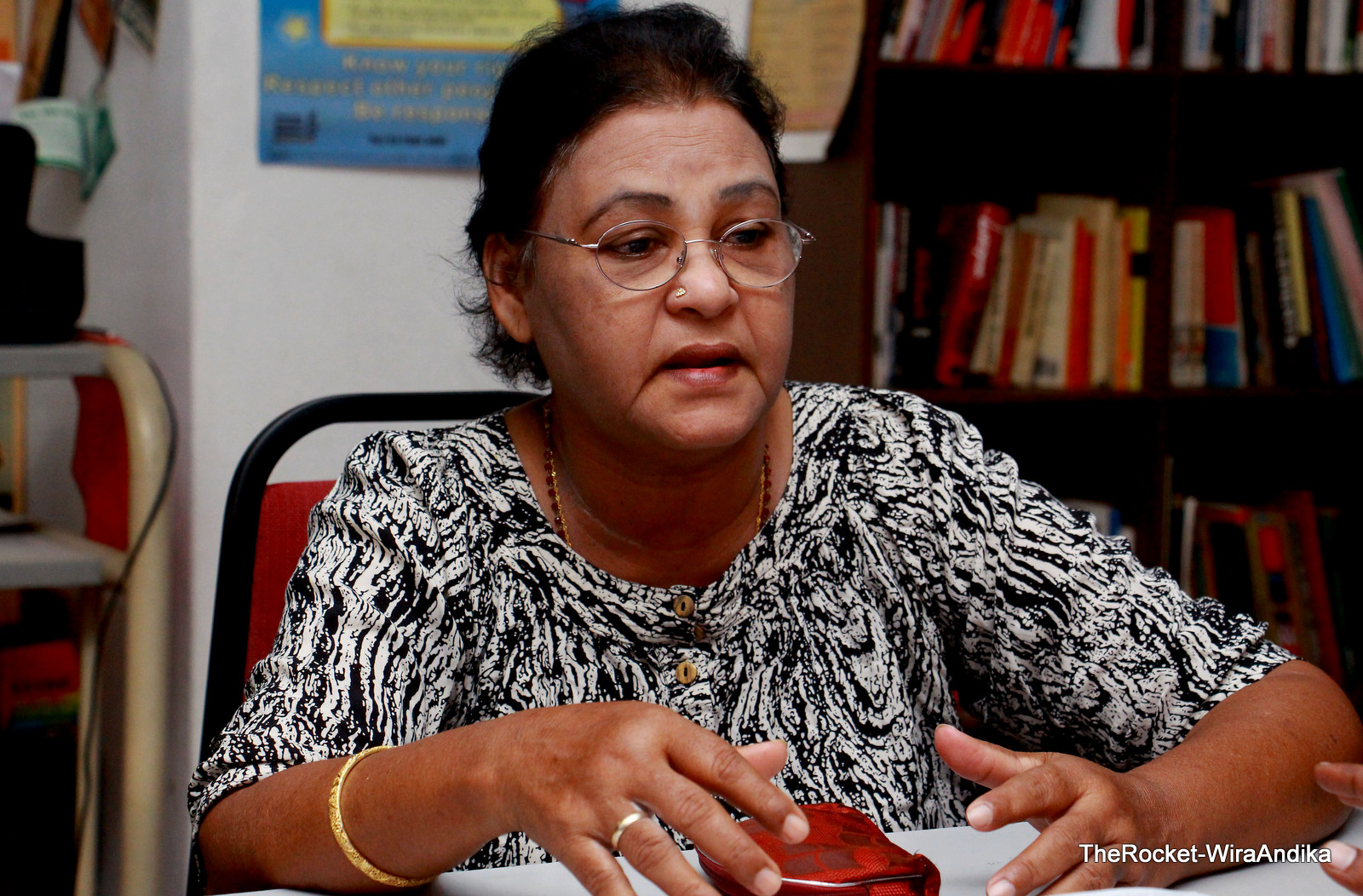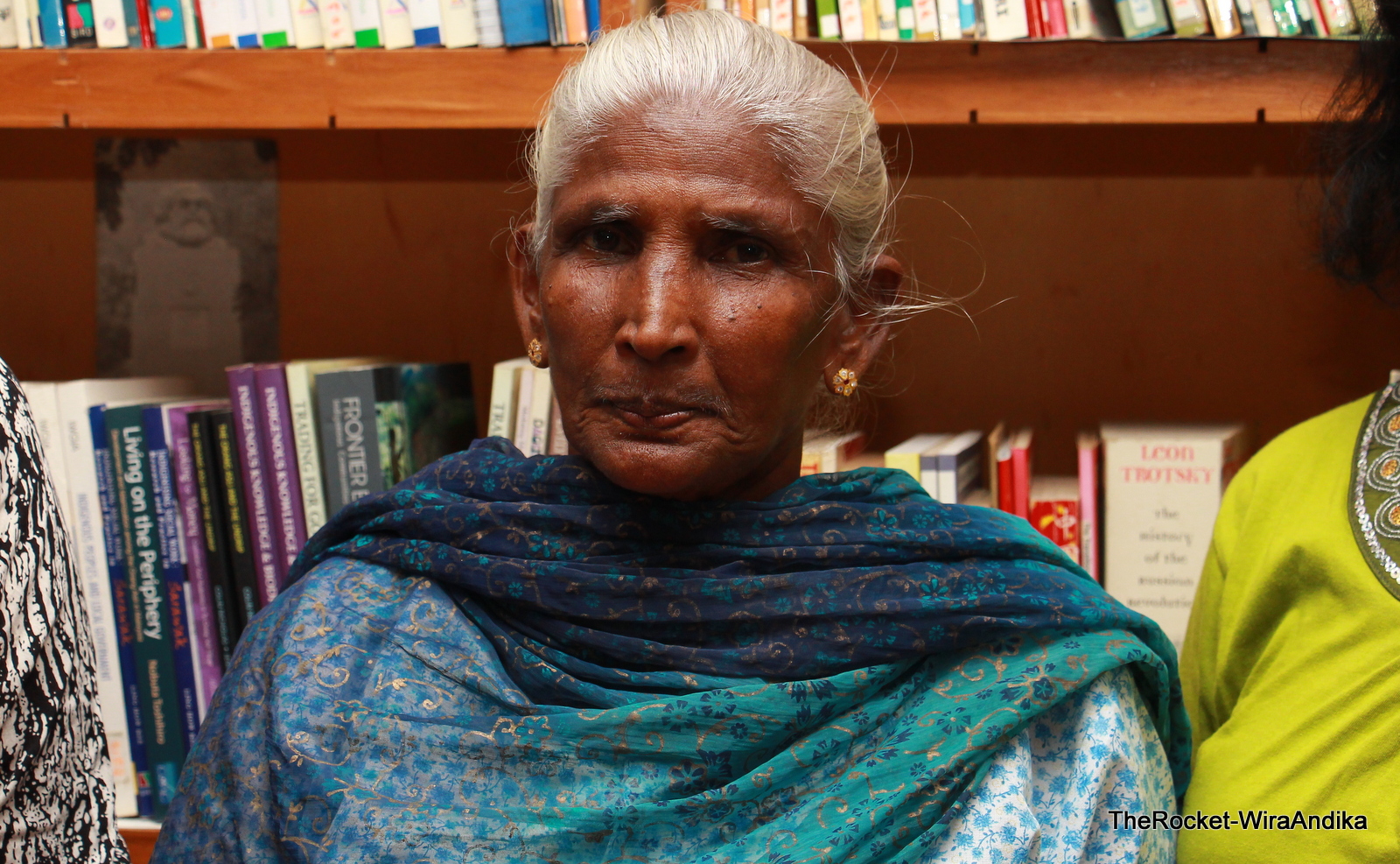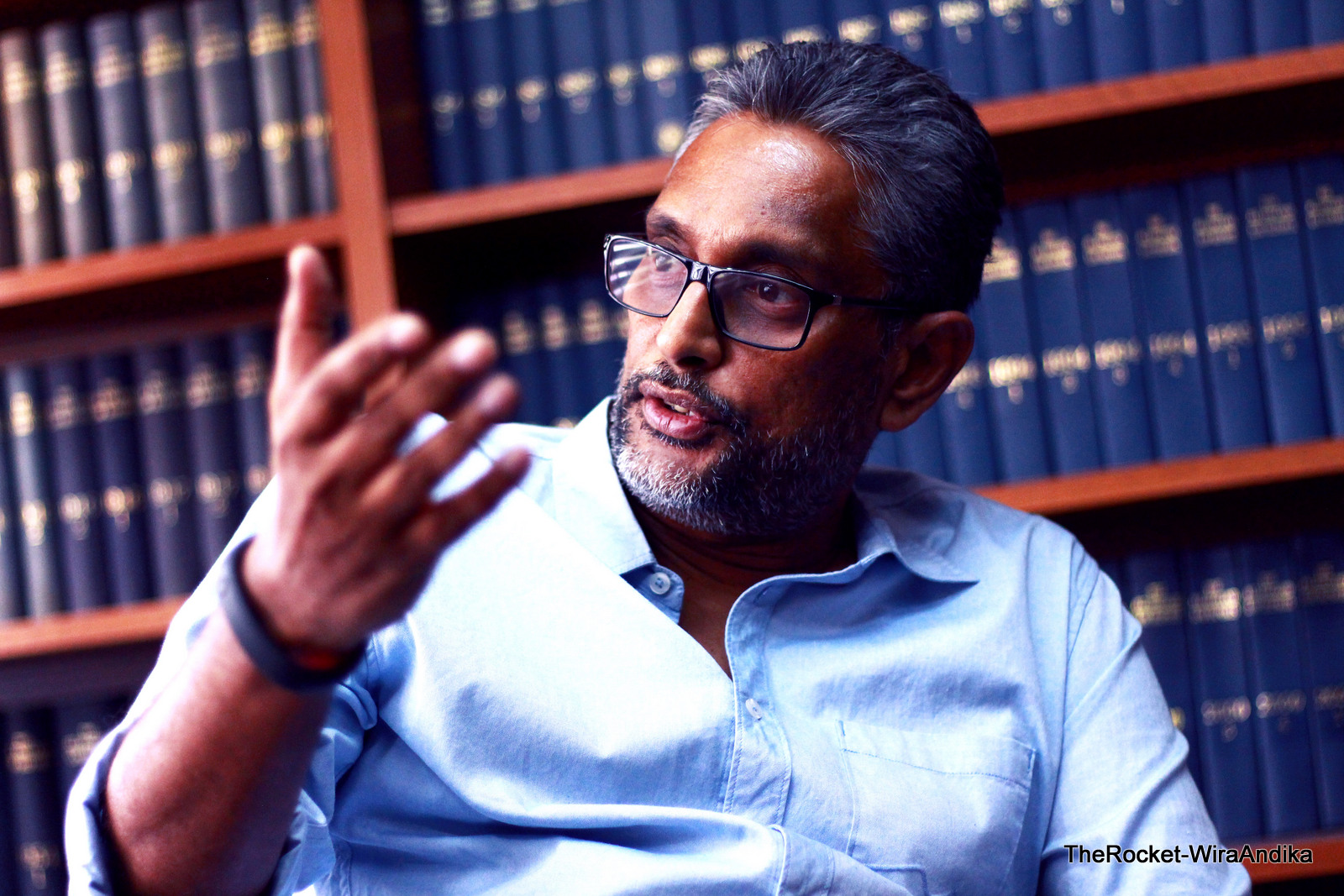By Pauline Wong
Almost 15 years ago, eight women lost their jobs operating machines in a plastic manufacturing company.
This occurrence is surely not rare, you say. Yes, the turnover for this company would be particularly high, but people lose their jobs everyday. Sometimes its due to things like a company downsizing, business was bad then, maybe?
What if we told you that these women, mostly aged 50 and above, lost their jobs simply because they dared to age, like all human beings do? That they lost their jobs for committing the apparently unforgivable crime of being old, or at least, daring to age until they reach 50 years?
That would be an injustice, you may think, since the retirement age for private sector employees have been raised to 60 years.
However, 15 years ago, these eight women had no choice — a clause in their full-time employment contract which was somehow ‘added’ without their consent dictated that at age 50, they would be forced to retire due to ‘health reasons’.
Never mind, of course, that later, the same company hired some of them back — but on a contract basis, meaning no contributions to the Employee’s Provident Fund (EPF), and no SOCSO protection.
The male workers of the company, however, were allowed to work until 55. The reason: Women would not be in good health to work past 50.
The women, through the union (which they had formed, despite their employer refusing to acknowledge it) had challenged their employers on the forced retirement in the Industrial Court in 2008.
The Industrial Court then had ruled in their favour, citing gender discrimination and asking the company to prove its stand on compulsory retirement.
However, in 2010, the High Court overturned the Industrial Court ruling, and, in March 2012, a Court of Appeals dismissed their application to challenge the High Court ruling.
After more than 10 years of fighting, it boiled down to a panel of men who decided that the company had done nothing wrong.
“Justice should have been on our side.”
Today, these women are left with nothing more than a bitter taste in their mouths — 15 years have gone by and still the anger is as sharp as ever.
“It came as a shock,” S. Letchmi, 64, told The Rocket in a recent interview. Speaking in Tamil, Letchmi said she was separated from her husband at the time, and her job was the only source of income that she had.
It is clear that they have not forgiven nor forgotten the injustice done to them, and Letchmi said it was very difficult for her when she was forced to retire.
“The salary was essential, I was about to turn 50 and nobody else would offer me another job. I had no notice, no compensation — just termination,” she said.
The salary she received for working the machines at the manufacturing plant was not much, but without it, Letchmi had no one else to turn to.
“My children are married and grown, and they have their own families, so I felt like I had no support,” she added.
Since she was forced to leave the job, she has not found another, and she has barely made it by with just a little allowance from her children from time to time.
The same goes for S. A. Samy Tolasiamah, who was 52 when the clause was ‘introduced’ into the employee handbook.
“I was so disheartened, because my husband was sick and I had to pay for the house. I was so disappointed, I thought the management would offer me some form of compensation to support me until I could find another job, but no.
“I managed to support myself with money from my son, but it was hardship. I had worked 10 years at the factory, and I was just forced to retire like that. If you ask me, the management was unhappy because the workers started a union,” she said.
For V. Pereyarka, who worked as a cleaner in the factory, she is most angry that when she was hired, she was told that age would not be an issue.
Pereyarka, who was 53 then, said the management forced her to stop working because she was “too old.”
“What they did to us was unacceptable,” she said.
In the 10 years they fought the case, nothing came easy, and the end-result was utterly devastating.
“I spent a lot of money, going up and down the court, in the years that the case dragged on, and it’s a hardship. All we were hoping for was justice, otherwise we would have given up and stopped.
“We feel cheated because justice was supposed to be on our side. We are not rich people, we only have the basics we need. The judgement should have favoured us,” Letchmi said, and there is no mistaking the frustration she feels.
Pereyarka said all they wanted was to get some form of compensation, and for the case to serve as a ‘lesson’ to employers who discriminate women workers.
Parti Sosialis Malaysia secretary general S. Arutchelvan, who with Kajang PSM branch member Letchimi Devi helped to work the case involving the eight women, said the problem is that many times the focus is not on grassroots women — that is, women who from the lower-income groups.
“A lot of issues raised in the conversation around gender equality are good, but does not reflect the situation of the grassroots women, who face a different kind of discrimination. And on the surface, it looked as if all the company wanted to cut cost, because many of those who were fired at 50 were re-employed by the company, on contract-basis! Without EPF and SOCSO,” he told The Rocket.
Letchimi said women workers feel every injustice deeply. “They do not have any agenda, they don’t want money, they just want justice.”
However, as it has become abundantly clear, there was no justice served there.
Gender discrimination cases rarely see victory: lawyer
At the time the case was being fought, their counsel, former Bar Council president Ragunath Kesavan, had argued that Article 8(2) of the Federal Constitution forbids discrimination based on gender. He also argued that Malaysia was a member of the Committee on the Elimination of Discrimination Against Women (CEDAW).
According to reports, he told the court that during the hearing before the Industrial Court, Guppy Plastics had not furnished medical proof or a report from the Department of Occupational Safety and Health (DOSH) to support its argument that women above 50 are physically unfit to resume their duties.
The Industrial Court, he added, had then decided there was discrimination in the difference between the retirement ages for men and women and said the burden laid on the company to prove their reason for the retirement policy.
However, it was also argued by the company’s counsel that at the time of the women’s termination, the word ‘gender’ had not been amended to be included into Article 8 (2), which states that No person may be discriminated against, in particular on grounds of origin, race, gender, age…”.
In a recent interview, Ragunath told The Rocket what disturbed him most in the whole struggle was how unsympathetic the Courts appeared to be.
“I felt disturbed that the Courts did not empathise with the plight of the women. Why did you need the amendment to the Constitution? The amendment was just an addition, but this did not mean that before it was added you could freely discriminate against gender. It is just to clarify and reconfirm the position. How could the Courts have ruled that prior to the amendment, gender discrimination was okay?” he said.
Just because the clause was placed into the contract, does not make it right, he said.
However, the discrimination that these women faced and the fact that they eventually lost the case is not unusual in that sense — very rarely do gender discrimination cases win in the courts, Ragunath said.
“Very rarely do we see success stories,” he said. “I worked a case for a lady two years ago who was to be employed in a senior position. After she signed the letter of offer, she found out she was pregnant. When the company was notified, they revoked their offer letter to her.”
What was difficult in that case, said Ragunath, was that her employment had not officially begun, so they could not take it into Industrial Court. They fought it as Breach of Contract instead, but the case was lost because she had not started work yet.
Ragunath added that it is often very difficult for women to mount a challenge against companies for discrimination, seeing that firstly, it is expensive.
“First you have to find a lawyer. Then the cost involved, and the company can take it all the way to the highest courts and it is costly. It is also traumatic for them to go on stand, and the questioning is usually aggressive: “You signed the contract, why didn’t you object then? Why now? You should have known this. You should have asked (about company policy on pregnancy).”
“But these issues would not arise if you were a man, would it?” Ragunath added.
In reality, there is not enough protection against discrimination provided for either in the Labour laws or the Courts. The courts seem to look at it on purely contractual terms — they seem to say: “Look, you didn’t notify the employer on this important factor, you should have notified.”
“They seem to suggest the onus is on the employee instead of the employer. I mean, this is a full-time employment. It is not as if she were about to be employed for three months basis and go on maternity leave for two months. In permanent employment these things (pregnancy, long-term illness) are part and parcel of life — and to punish a woman for it… and they get away with it, is the biggest problem for them,” Ragunath said.
“For a woman, if she is pregnant and leaves her job, there is no way another employer would hire her. That is an unwritten rule.
“In job interviews, if a woman is married, they immediately ask her: Do you plan on having children? Are you pregnant? All these are being imposed, and it is difficult. These are hurdles that women face. Even if you have all these new laws, clearly there are big hurdles to cross. Beyond that, some employers say: We are looking to employ a man because the job involves a lot of travelling — these are conditions imposed that make it difficult for women. The laws say there should not and must not be bias, but because of a lack of understanding, insensitivity or lack of accountability, it is not implemented,” he said.
Again, these same questions would not be asked of a man: no employer asks a male employee if he is planning on having children or if his wife is pregnant.
He says there needs to be more sensitivity training for the judiciary and a continuous process by the government to tighten the Labour laws, and monitor the employer instead of forcing the employee to take it up against the employer.
“Because if you leave it to the courts, you are essentially making one person take on a giant, it is really impossible to win in the courts,” he said, adding that there needs to be active intervention by the state. Complaints of gender discrimination must be taken up by the authorities instead of waiting for the aggrieved party to take it up in the courts.
There is a complete lack of awareness and appreciation for gender equality. These are the biggest challenges, from the language used to the line of questioning, said Ragunath.
“This you see most often in sexual harassment cases, where the woman has to be burdened to prove she has been sexually harassed. They are asked: Why didn’t you lodge a police report? Why did you continue working? and the tone of it… I have seen many women break down on the stand,” he added.
Not all gender discrimination is ‘obvious’
Gender discrimination seems very far away in today’s modern world. In the urban setting of Kuala Lumpur, among the young women today, gender issues centre around feminism, equality, and on ending violence against women.
As more women enter universities and break glass ceilings, the question of gender bias now forms its argument around ensuring women are given equal pay, equal opportunity and the end of patriarchy.
The work of the women’s rights groups are as always, commendable: they protect battered women, give them shelter, and give them new hope. They also lobby for better laws to protect women.
These are fine things to be concerned about, but other, more insidious, forms of violence abound.
These come in the form of gender-discrimination in the workplace that go beyond “Women cannot be CEOs”. It comes in the form of a woman losing her job because her age instantly makes her somewhat inferior, or that her God-blessed ability to conceive is not ‘convenient’ for the company.
It is insensitivity, rather than outright discrimination, that has somehow escaped the attention of those who champion women’s rights.
As International Women’s Day is celebrated every March 8, it bears remembering that if we are to make the necessary leaps forward in gender equality, then there needs to be an end to these kinds of issues, like having a pregnant or older woman seen as a ‘liability’ to the employer.
We need to remember that even as we talk about empowering women, many more are silently suffering from being denied fair employment and treatment, or being harassed at work with no recourse given to them.
– The Rocket

